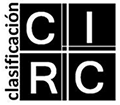The Spanish School as a forerunner to the English School of International Relations
DOI:
https://doi.org/10.18002/ehh.v0i6.3095Keywords:
Derecho internacional, guerra justa, sociedad internacional, Escuela Española, Escuela Inglesa de Relaciones Internacionales, international law, Just war, International society, Spanish School, English School of International RelationsAbstract
RESUMEN: El propósito de este artículo es presentar a la tradición escolástica española del siglo XVI, con particular énfasis en la obra de Francisco de Vitoria, como precursora de la Escuela Inglesa de las Relaciones Internacionales. El artículo sitúa la discusión de los conceptos de ‘guerra justa’, la legitimidad de la conquista de las Indias y la subyugación de sus habitantes en el contexto histórico del sistema político internacional naciente. El artículo esboza también las circunstancias históricas que dieron lugar al advenimiento ideológico de la llamada Escuela de Salamanca o Escuela Española y compara los conceptos del derecho internacional y la ‘sociedad internacional’ explicados por la Escuela Española y la Escuela Inglesa.
ABSTRACT: The purpose of the paper is to expose the 16th century Spanish scholastic tradition (and particularly the work of Francisco de Vitoria) as a forerunner to the English School of International Relations. The paper situates the discussion of the concepts of ‘just war’, the legitimacy of the conquest of the Indies and the subjugation of its inhabitants within the historical context of the nascent international political system. The paper also outlines the historical background of the Spanish School and draws comparisons between the concepts of international law and ‘international society’ as understood by the Spanish School and the English School of International Relations.
Downloads
References
ATKINSON, W. (1961). A History of Spain and Portugal, Harmondsworth: Middx, Penguin Books.
ALVARADO, R. (1994). “Fountainhead of Liberalism”, Contra Mundum, 10, Winter. Federalism.
BROWN Scott, J. (1934). The Spanish Origin of International Law, The Clarendon Press: London.
BOOTH, K. and SMITH S. (1995). International Relations Theory Today, Polity Press: Cambridge.
BULL, H. (1995): The Anarchical Society, Basingstoke: Macmillan.
CANO, Melchor. (1962) Tratados espirituales. Estudio preliminar y edición preparada por Vincente Beltran de Heredia, Madrid: Editorial Católica.
HAMILTON, B. (1963). Political thought in sixteenth-century Spain: a study ofthe political ideas of Vitoria, De Soto, Suârez, and Molina, London and New York: Oxford University Press.
JAMES, A. (ed.). (1973). The Bases of International Order-Essays in Honour of C A W Manning, London and New York: Oxford University Press.
KAMEN, H. (2002). Spain’s Road to Empire-The Making of A World Power 1492-1763, London: Penguin Books.
MACHIAVELLI, N. (1985). The Prince, Chicago : University of Chicago Press.
MENCHACA, Fernando Vázquez de, ControversiarumIllustriumhttp://www.seminariodefilosofiadelderecho.com/BIBLIOTECA/V.htm
PAGDEN, A. (1990). Spanish Imperialism and Political Imagination. Studies in European and Spanish-American Social and Political Theory, 1513-1830, New Haven and London: Yale University Press.
PAGDEN, A. (ed.) (1987). The Languages of Political Theory in Early-Modern Europe, Cambridge, Cambridge University Press.
SOTO, Domingo De. De Justitia et Jure (1553). Ad Sanctum Concilium Tridentinum de natura et gratia libri tres http://es.wikipedia.org/wiki/Escuela_de_Salamanca.
SOTO, Domingo de (1995): “Notas sobre el concepto de rapiña según Domingo de Soto”, Anuario Mexicano de Historia del Derecho, Nº. 7, pp. 51-72.
SUAREZ, Francisco. (1995). Selections from three works of Francisco Suárez, S. J. Vol. 1, Buffalo, N.Y: Hein.
VINCENT, R. J. (1986). Human Rights and International Relations, Cambridge: Published in association with The Royal Institute of International Affairs by Cambridge University Press.
VINCENT, R. J. (1974). Nonintervention and international Order, Princeton, N.J: Princeton University Press.
VITORIA, Francisco de (1557) Relectiones Theologicae, Lugduni.
VITORIA, Francisco DE (1917). De Indis et de iure belli relectiones, being parts of Relectiones theologocae XII, edited by Ernest Nys, Washington: Carnegie Institution of Washington.
VITORIA, Francisco de (1991). Political writings, edited by Anthony Pagden and Jeremy Lawrance, Cambridge: Cambridge University Press.
WIGHT, M. (1991). International Theory, London: Leicester University Press, a division of Pinter Publishers.
WIGHT, M. (1995). Power Politics, New York: Leicester University Press.
Downloads
Published
How to Cite
Issue
Section
License
Copyright (c) 2007 Nicolás Lewkowicz

This work is licensed under a Creative Commons Attribution-NonCommercial-ShareAlike 4.0 International License.
Los autores que publican en esta revista están de acuerdo con los siguientes términos:
1.- Los autores ceden de forma no exclusiva los derechos de explotación (reproducción, distribución, comunicación pública, transformación) a la Universidad de León, por lo que pueden establecer, por separado, acuerdos adicionales para la distribución no exclusiva de la versión de la obra publicada en la revista (por ejemplo, alojarlo en un repositorio institucional o publicarlo en un libro), con un reconocimiento de su publicación inicial en esta revista.
2.- Este trabajo se encuentra bajo la Creative Commons Attribution-NonCommercial-ShareAlike 4.0 International License. Puede consultarse desde aquí la versión informativa y el texto legal de la licencia.
3.- Se permite y se anima a los autores a difundir electrónicamente las versiones pre-print (versión antes de ser evaluada) y/o post-print (versión evaluada y aceptada para su publicación) de sus obras antes de su publicación, ya que favorece su circulación y difusión más temprana y con ello un posible aumento en su citación y alcance entre la comunidad académica.








